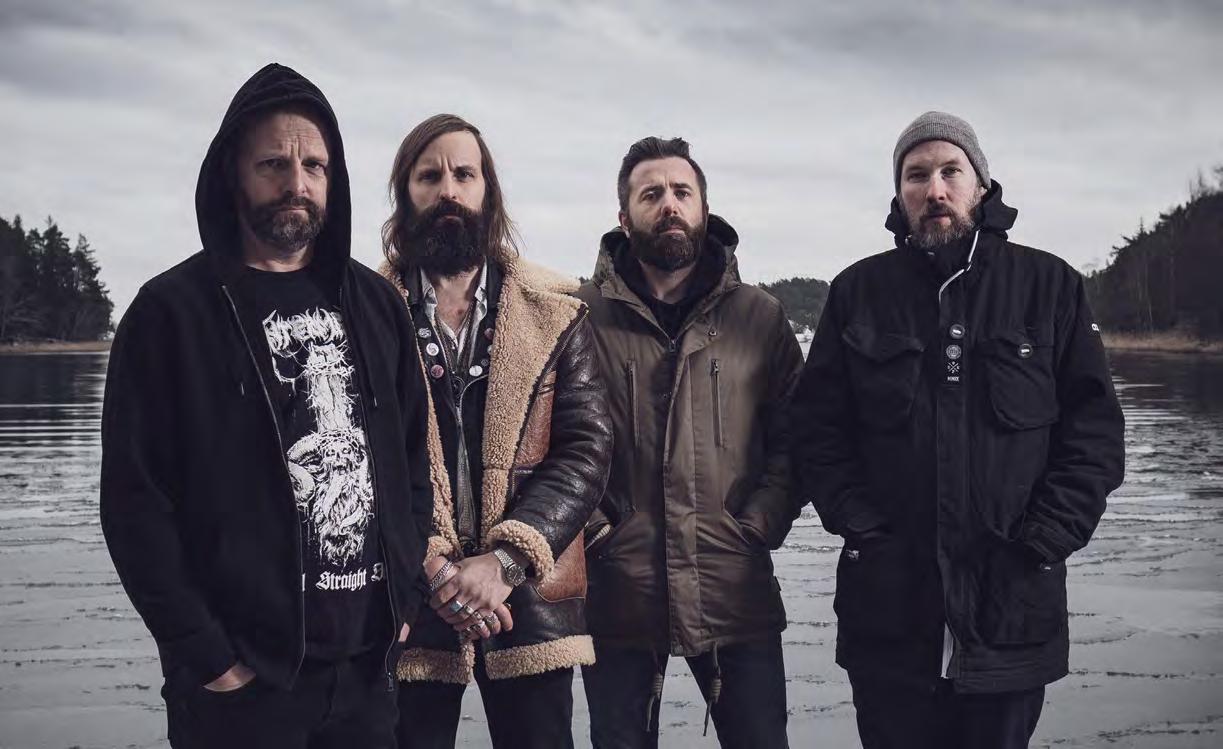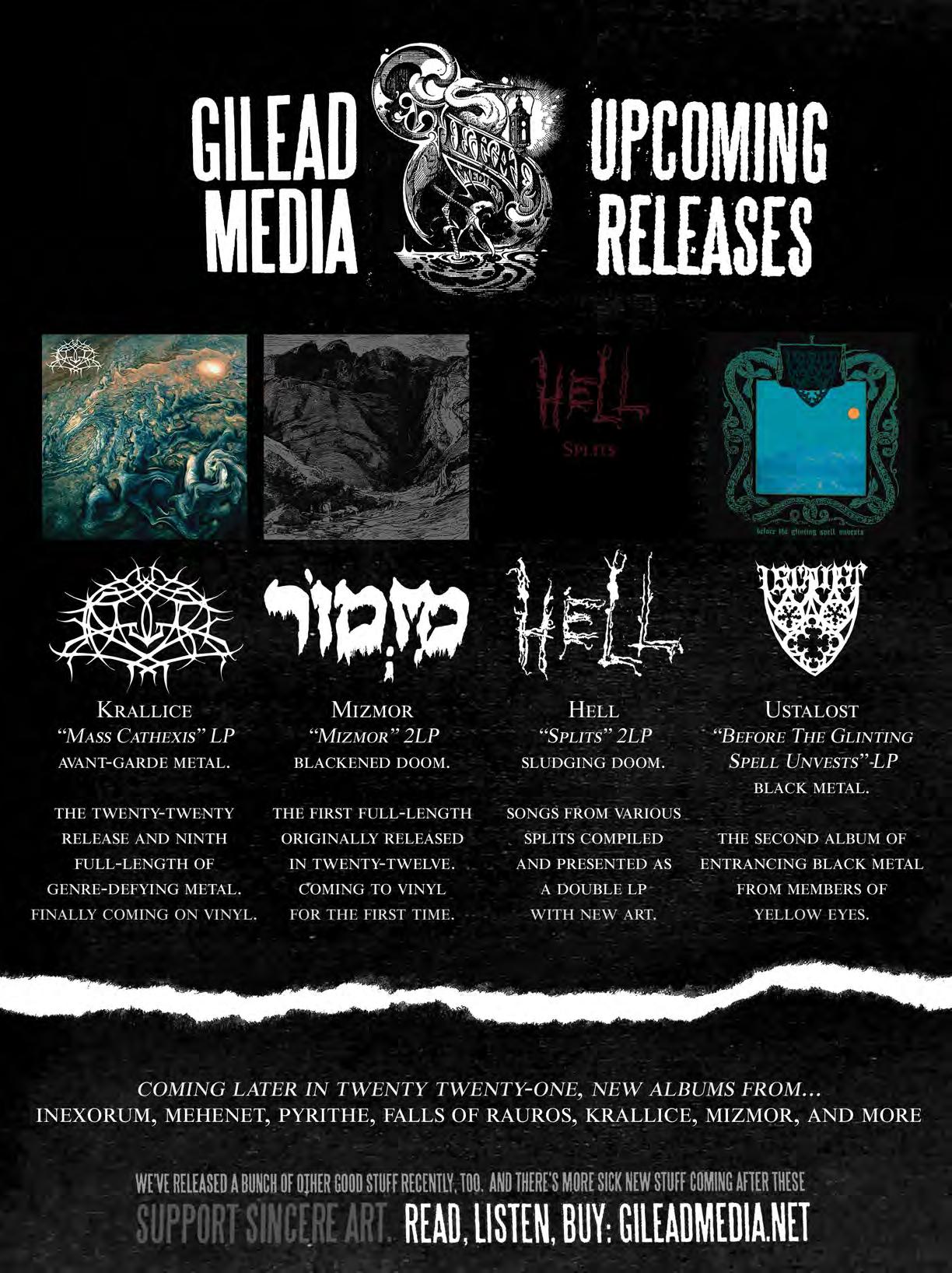
2 minute read
horndal
Swedish hardcore sludge quartet rightly refuses to make way for “progress”
IN 2017, tech giant google confirmed that they had purchased 109 hectares of land in Horndal, Sweden. The quiet town of just over 1,000 residents had already been severely burned by big business in 1977, when a steel factory employing half the population closed, effectively inciting economic collapse. Four decades later, Google ominously began cutting down the forest—referred to as “felling” in corporate speak—prompting fears in the populace about exactly who might benefit from this burgeoning development. ¶ Brothers Henrik and Pontus Levahn were respectively born shortly before and after the closure of the steel mill. Their father Lars, a teacher, acted in a local play protesting the event. He was the “star” of the production, a bluntly allegorical Satan who came to destroy the mill. The storied death of their hometown left such a strong impression on the musicians that it eventually became the namesake and central theme of their band. ¶ “Our hearts are still in Horndal,” begins drummer Pontus, who spoke to Decibel from Stockholm, where he and his family currently reside. Pontus is on the cusp of his second parental leave after the birth of his daughter;
his first resulted in the writing and recording of Horndal’s ferocious 2019 debut Remains. Released by Prosthetic, the album strongly channels Swedish post-hardcore à la Breach (a band that Pontus unabashedly loves). Via this potent blend of hardcore, sludge and death metal, Horndal chronicle uniquely Swedish tales that are intimately understood and experienced by every nation on earth.
“It’s caused mixed emotions for people,” Pontus says of Google’s arrival, which prompted the concept of their impending second album, Lake Drinker. “Some think this will save us; some people are feeling like, ‘What will really happen?’”
He continues: “When we heard about their plan to put this pipeline to the lake, to use it for cooling water for the server… that’s the lake where we grew up swimming and fishing. That’s the water for the village. So, we just felt like the devil is back and he’s thirsty, hence the name Lake Drinker.”
The album features multiple guest contributions, most notably Horndal’s own residents, who came out in droves to protest Swedish Prime Minister Nils Olof Thorbjörn Fälldin following the closure of the steel mill. Anders “Buffalo” Eriksson is the subject of “Thor Bear,” a song about his experience that he narrates. During the protest, Eriksson was arrested and interrogated by the Swedish Security Police, who then revoked his passport for a full decade. The visceral anger surrounding these events is palatable throughout Lake Drinker, a thematically and sonically compelling work that has connected its members to their hometown like never before.
“Everyone there is really supportive in helping us,” enthuses Pontus. “I get the sense that it’s something for them to unite around. And I’m just so proud of that. In the end, this is a tribute to them, so it’s very important that they are behind











